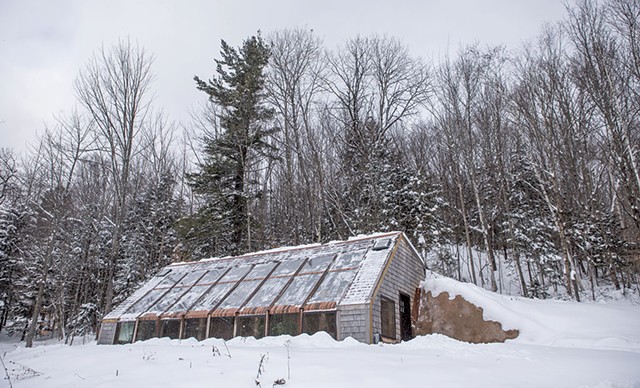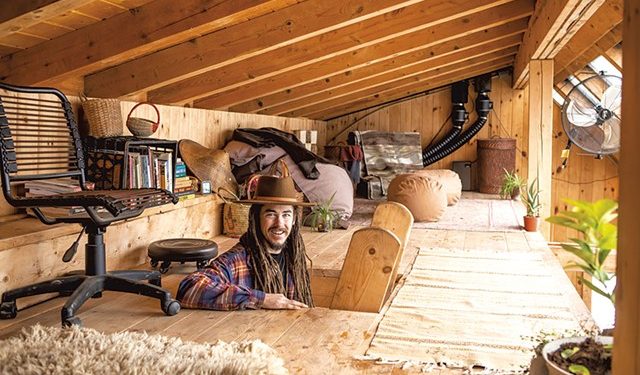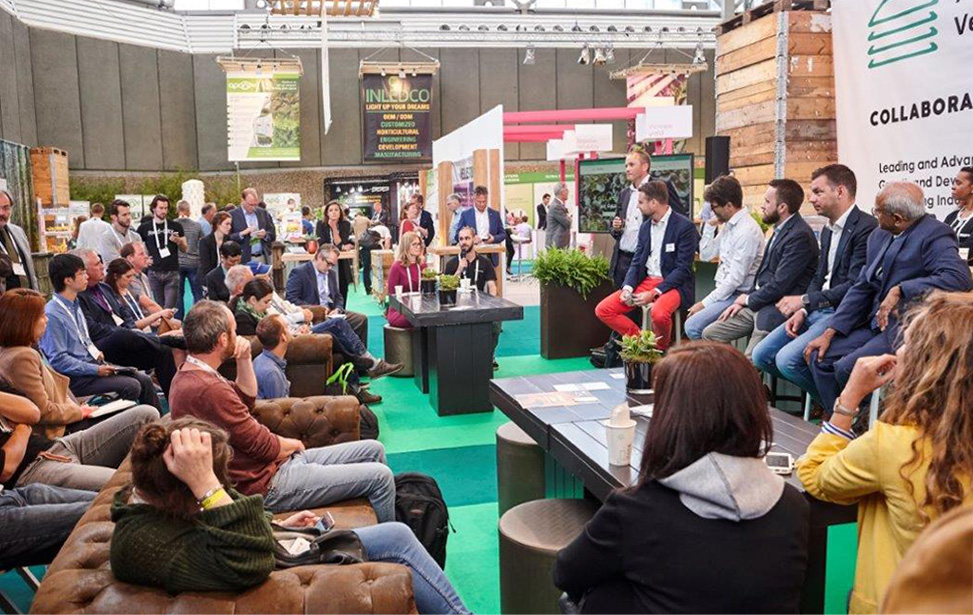#Agriculture #BotanicalGardens #Greenhouses #Horticulture #PlantDiversity #Innovation #Education #Inspiration #WinterEscapes #Sustainability

In the picturesque Vermont winter, Brenden McBrier’s year-round greenhouse stands out as an oasis of thriving fig trees, kiwi vines, and tomato plants. Built in 2022 for the Awakening Mountain intentional living community, this unique structure, inspired by Earthship architecture, redefines sustainable agriculture.
The 720-square-foot greenhouse relies on a massive mound made of sand-based cement, earth, and old tires as its back wall. Acting as thermal batteries, these tires help maintain a consistent temperature, providing a climate-friendly environment for diverse crops. McBrier’s focus on sustainable agriculture and permaculture shines through in the careful selection of crops, including mint, nasturtiums, lime trees, kale, broccolini, and massive cabbages.
The loft space, expanding the greenhouse to 1,000 square feet, introduces innovative cooling solutions. Fans in the loft extract heat, sending it underground through thermal cooling tubes beneath the garden beds, ensuring a comfortable temperature during the summer months. Although McBrier opted out of solar panels, he emphasizes their potential to supplement thermal heat production without fossil fuels.
McBrier’s journey, from a landscaper in Colorado to a Vermont resident dedicated to sustainable living, reflects a commitment to reconnecting with the Earth. Drawing inspiration from Earthships, he brings their principles into greenhouse design, providing an alternative to energy-intensive conventional structures.
The advantages of earthen greenhouses extend beyond temperature regulation. These structures protect plants from wind damage and can incorporate water-catchment systems, addressing concerns in flood-prone areas—a critical consideration in Vermont’s changing climate.
Cymone Bedford, a resident of a Vermont Earthship, highlights the efficiency of Earthship design in optimizing energy use, enabling the cultivation of crops year-round. As Vermont faces environmental challenges, climate-friendly solutions like McBrier’s greenhouse offer a pathway to sustainable agriculture without breaking the bank.
The marriage of Earthship principles with greenhouse design represents a paradigm shift in sustainable agriculture. McBrier’s earthen greenhouse showcases how innovative, climate-friendly solutions can redefine food production, providing a blueprint for farmers, agronomists, and agricultural engineers to embrace a more sustainable future.












